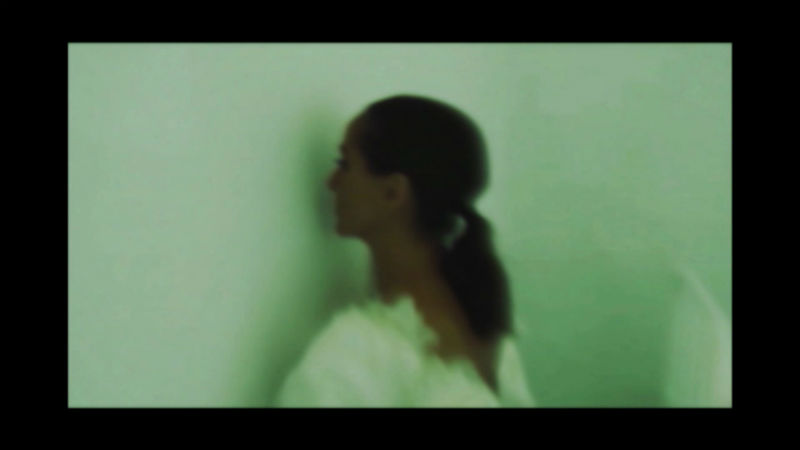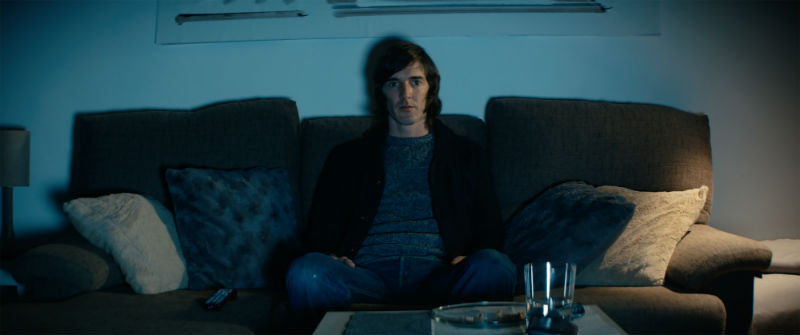- Panorama Spain by the hand of director Virginia García del Pino. The Festival’s workshops at the Rodríguez Quegles Palacete and Monopol’s screen 5 offer today the lecture and selection of titles, respectively, by Spanish director Virginia García del Pino. The films By Day (Alex Reynolds, Spain, 2016, 18’35¨), Gure Hormek / Our Walls (Maider Fernández Iriarte and Maria Elorza, Spain, 2016, 15’13”), Ihesa / The Escape (Alejandro Díaz Castaño, Spain, 2016, 15’19”) and Luna Cautiva Serpiente Roja Bandeja de Plata (Ana Pfaff Ariadna Ribas / Dos Topos, Spain, 2017, 10 min.), included by the director in the Panorama Spain cycle, will be screened today at 8 p.m. in which is the last part of the section devoted to authors from the D-Generation cycle, a retrospective that gathered in 2008 the works by Fernando Franco, Elías León Siminiani, Isaki Lacuesta and Virginia García del Pino as samples of the productions that are close to documentaries and rather flirt with the avant-garde and video art than with fiction. Very different filmmakers who only share the decision of shooting without stopping because of their inability of cataloguing their work within the limits of conventional cinema. The Festival has given them “carte blanche” in 2017 for the Panorama section’s selection of works.

- Panorama Spain: expanded cinema. Far from usual showing places there is cinema as well. The museum appears as a continent of art cinema pieces, and it is along these lines where the five films selected within the Expanded cinema session move, conceived by Panorama Spain’s curators, Josetxo Cerdán and Antonio Weinrichter: Different Trains (Beatriz Caravaggio, Spain, 30 min.), a film reinterpretation of Steve Reich’s musical work; The Glass Threshold (Ana Rodríguez León, Spain, 2015, 24 min.),where real spaces and the world created by commercials are mixed; Burning Mountains that Spew Flame (Samuel Delgado, Helena Girón, Spain, 2017, 12 min.), in which La Corona’s volcanic tubes (Lanzarote) act as communicating vessels between time and space; New Madrid (Natalia Marin, Spain, 2016, 10 min.), an experimental essay about failed utopias and cities built as copies; and Quemar pajarracas (Eva Lilith, Spain, 2015, 4 min.), a pataphysical compendium of feminist slogans in an invented language that surprised at the Festivalito La Palma. All of them pieces of art, essays, with appearances at festivals that look beyond conventional cinema and its usual showing places. They will be screened today, at 6 p.m., at the Monopol’s screen 5, and on Saturday 8, at 10:30 p.m. at the Monopol’s screen 3.
- Essay film workshop at the Rodríguez Quegles Palacete. Thinking films. In recent years, the essay film has prevailed as the most useful and innovative discipline to reflect on past and current cinema. On April 3, 4, 5 (from 5 to 8 p.m.) and 8 (from 10 a.m. to 2 p.m.) film critic and programmer Javier H. Estrada will teach at the Rodríguez Quegles Palacete an essay film workshop included in the festival’s activity program. Reviews made from film pictures have proven as valuable for film analysis as traditional written reviews, being able of communicating ideas and thoughts words do not reach. Authors such as Adrian Martin, Cristina Álvarez López, Kogonada or Kevin B. Lee have revolutionized this discipline to the point of elevating the essay film to the category of art. Yet this technique is barely used in Spain. The workshop will delve into the essay film’s limitless possibilities with three first lessons dealing with the screening and discussion of the different forms and approaching strategies to the discipline, and two days for the making of a work that will be screened and discussed by the rest of the participants during the workshop’s last session.Javier H. Estrada runs the FILMADRID programming and, since 2013, is part of the Lima Independiente International Festival’s programming team (Peru). Besides, he is a member of Caimán, Cuadernos de Cine y Secuencias’ editorial department, too.
Share this Post

